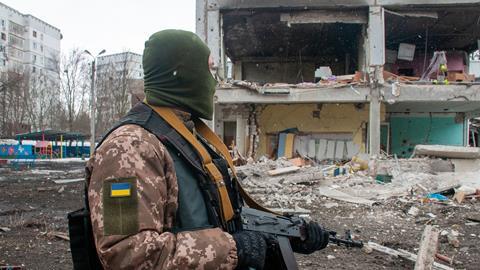Will the last one to leave please turn out the lights. The retreat from Moscow began in earnest this week, as the global legal elite finally opted to cut their losses
On Wednesday, the acute commercial sensitivities of any association with Russia and its citizens – living or dead – were bathetically illustrated when Cardiff Philharmonic cancelled a Tchaikovsky performance. Even deceased composers are being cancelled.
But perhaps the decision was right despite the public ridicule that ensued. Any celebration of Russian militarism is tone-deaf in the current febrile environment.
That was a storm in a samovar in truth, but City law firms are surely right to conclude that they have a lot more to worry about in terms of public perception of all things Russian.
This week, a fortnight after Boris Johnson first announced the current sanctions against Russia, an exodus from Moscow began in earnest. Despite a strident defence of law firms representing Russian clients from the City of London Law Society, partner executives have concluded that the reputational contagion is too toxic to bear.
The breakneck pace of events has been something to behold. Just six days ago, CLLS chair Edward Sparrow emphasised the importance of the right to legal representation under the rule of law, which he said ‘requires that everyone, however unpopular they or their cause might be, has access to a lawyer and to our independent courts’.
Sparrow added: ‘The UK government will take great care to ensure not only that any sanctions achieve their intended purpose but that they comply with the law and are enforceable in the courts. The rule of law demands that those facing those sanctions should have access to legal advice and the courts to test their legality. The fact that Putin ignores the rule of law does not mean that we should follow his example.’
Few CLLS members, it would seem, are keen to test this hypothesis to self-destruction. Many of the biggest firms have now shut their Moscow offices and some are turning their backs on Russian clients altogether.
The latest are magic circle outfits Allen & Overy and Clifford Chance – which means the leading quintet have all now severed ties.
A&O announced yesterday that it would ‘wind down’ its 30-year-old Moscow office. Fifty-five staff will be redeployed where possible. ‘It is with regret that this has been made necessary by the illegal and senseless invasion of Ukraine and the ensuing humanitarian crisis,’ A&O said.
Clifford Chance said yesterday the firm ‘have decided to progress our steps for an orderly wind down of our operations in Moscow’.
Freshfields and Linklaters announced earlier this week that they would close their offices in the Russian capital. Freshfields said the decision was ‘not a decision we have taken lightly’, but added: ‘In light of the Russian government’s actions in Ukraine, and the clear stance we have taken on Russia-related work, we believe that this is the right course of action.’
Other firms to shut up shop in Russia include Eversheds, Gowling WG and Norton Rose Fulbright. Slaughter and May said: ‘Our long-standing client acceptance procedures mean we have done very little work for Russian clients. We have no active Russian clients and will not be taking on any new Russian clients. We have no office in Russia.’
Gowling ‘will no longer accept new instructions from Russian clients, sanctioned or not, and we will end relationships with Russian clients in a manner that complies with our professional obligations’.
Several major US-based firms have also decided to leave Russia or suspend their activities there, including: Cleary Gottlieb Steen & Hamilton; Morgan Lewis & Bockius; Squire Patton Boggs; and Akin Gump. Fellow US firm Debevoise & Plimpton said it is ‘conducting a review of the status of our Moscow office in light of recent developments’ and ‘will not take on any new clients in Moscow’.
City firm Fieldfisher will ‘terminate all Russia-related instructions that facilitate the Russian military action in Ukraine’ and has ‘already ceased to act for a number of clients’.
Other leading firms have also decided to refuse new instructions from businesses and individuals linked to the Russian state, including Ashurst and Stewarts.
Hogan Lovells and Dentons have ended ongoing work or declined new clients in response to the ongoing conflict, while Clyde & Co, RPC and Withers said they are reviewing existing instructions.
As this mass tactical withdrawal continues, the debate is already shifting. Russia is hardly the only undemocratic, authoritarian state with whom foreign lawyers parlay that harbours oligarchs and kleptocrats. The Pandora papers proved that.
Now, it would seem, Pandora’s box is open wide.
































No comments yet